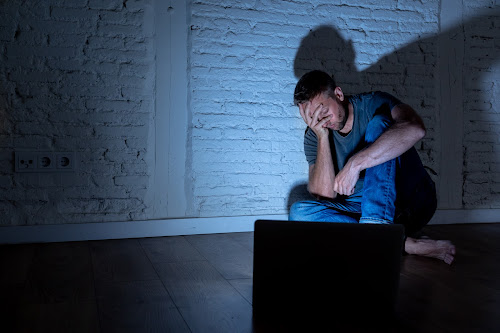
UNMASKING PHOBIA So many of us find ourselves with phobias. Are you afraid of closed-in spaces, spiders, or flying in an airplane? For most people, a negative experience starts the phobia. Pandemic anyone? In countries that seem to have beaten COVID, researchers have found that a significant number of people have developed agoraphobia and are afraid to leave their houses even though it is now safe for vaccinated people to go out. This is not too surprising, after all, the message that was not safe to leave the house was pounded into our brains by the news, public service announcements, and social media. Now some people will need help to unlearn that fear. Like most anxiety disorders, phobias like agoraphobia are related to the fight or flight response, This response is part of our body's survival mechanism. When our caveman ancestors were faced with physical danger, a part of the brain called the amygdala was activ...





